ADSactly Mystery: The Quest for Eternal Life
Not a week goes by without us stumbling upon some news telling us we’re so close to attaining eternal life. Doctors promising to find a way to stop and reverse the aging process or scientists with futuristic plans of downloading human consciousness into a computer or, even better, into holographic avatars. We’re obsessed with immortality or, at the very least, a really long life, hundreds of years, if possible.
However, this obsession is not new and throughout history there have been many others searching for eternal life.
One of the first people to use his power and wealth to search for eternal life was the first emperor of China, Qin Shi Huang, the one with the terracotta army.
Born in 259 BC, Qin Shi Huang conquered the six warring states of China to create a unified empire, proclaiming himself as emperor. He ordered fortifications between the conquered lands to be destroyed and had the remaining portions united and fortified in the Great Wall, although much of what was built during his reign was eroded by the elements and replaced by stronger walls centuries later.
He was a great political figure and his legacy would endure, but cared most about his personal survival. Chinese archaeologists have discovered in the Hunan province 36,000 bamboo slips from the Qin dynasty, some of them containing the emperor’s orders that local authorities and the few doctors of the time all search for an eternal life remedy. And they did, because you wouldn’t want to cross such a powerful emperor. They didn’t have much luck, though, and one poor official from a village called Duxiang, informed the emperor he had been unable to locate such a miraculous potion, but gave assurances the quest will continue. Another slip written by someone in Langya, in today's eastern Shandong province, contains references to a plant growing on "auspicious local mountain", which seemed promising.
The sad part is that somehow Qin Shi Huang was convinced the secret to eternal life lay in cinnabar, a mineral containing mercury sulfide. For a long time, cinnabar was used to obtain red pigment, widely used by artists and cloth-makers. Nobody knew back then the mercury in the mineral is extremely toxic. It seems that, in his quest for immortality, the emperor managed to poison himself with mercury pills, which might explain why he died at the relatively young age of 49.
However, Qin Shi Huang had contingency plans and was well prepared for the afterlife. His mausoleum contained numerous riches, besides the famous army of terracotta warriors. To entertain himself in the after life, many of his concubines were buried with him. Not to mention the beautiful scenery in the giant tomb, which included replicas of China’s main rivers, also made out of mercury.
Several other Chinese emperors carried on the quest for immortality, and mercury remained quite popular.
Sometime in the 9th century, Chinese monks working on an elixir of life managed to discover gunpowder, which, as we all now, has a rather devastating effect on human life.
As mentioned in a previous post, the ancient Sumerian Epic of Gilgamesh also mentions the idea of immortality. The hero, Gilgamesh, goes on a quest to find the local equivalent of the Biblical Noah, although this man could not help him. He did not have a miracle potion for eternal life, as he had been granted immortality by the Gods - sort of a one-time deal.
Ancient Hindu texts contain references to a mysterious elixir of life, called Amrit, which could be obtained by "churning of the ocean". As you can guess such a process implied great force and mythical powers, only the Gods had. And they did manage to produce this Amrit and became immortal. Needles to say, regular people could not "churn the ocean".
Something even mere mortals could try, though, was alchemy and for thousands of years people were convinced there’s a connection between gold and eternal life.
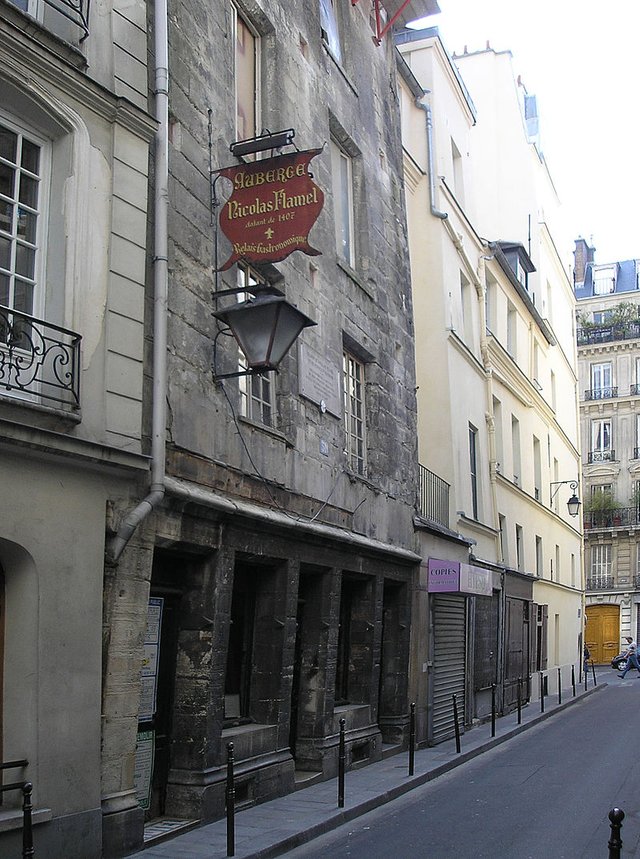
Flamel's house still stands in Paris
source
If the name Nicholas Flamel sounds familiar to you, it is probably from the Harry Potter books. However, Flamel was a French scribe and manuscript seller, who, after his death in 1418 acquired a reputation as an alchemist and was widely believed to have come up with the formula for the ‘Philosopher’s stone’, which grants immortality. Legend has it he found the secret recipe in an old manuscript and gained immortality both for himself and his wife, Perenelle. Yes, I am aware I just mentioned his death in 1418, I guess that only refers to the historical character, whereas the legend lives on.
Actually, the Europeans’ fascination with eternal life dates back to the 12th century, when tales about Prester John and his hidden Christian kingdom began to spread. It was rumored that his kingdom was rich beyond measure, full of marvels and its inhabitants enjoyed eternal life. Most of the details about this place came from a so-called Letter of Prester John, almost certainly a forged document. However, the rumors spread like wildfire, the letter was translated in several languages and many left in search of the lost kingdom, rumored to be in Asia or maybe in Northern Africa.The legend was put to rest in the 17th century by a German academic who managed to prove there was no truth to the story. However, Prester John din manage do obtain immortality for himself, as even today he appears as a character in comic books and was featured prominently in Umberto Eco’s 2000 novel ‘Baudolino’.
Among those thought to have been in search of eternal life there’s also the Spanish explorer Ponce de Leon who went to the territory of modern Florida to look for the fountain of youth. He got that idea from a tale he had heard among Caribbean islanders, which mentioned a fountain capable of restoring the vitality of anyone who swam in its waters. Maybe this is the reason why many Americans choose to retire to Florida to this day. Hard to say how much of this Ponce de Leon story is true, but fact is a fountain of youth does exist in Florida, although the only benefit it provides is a nice background for the tourists flocking to take pictures there.
There is no conclusion to this post, the quest for eternal life goes on, but, I’m curious, would you like to be immortal?
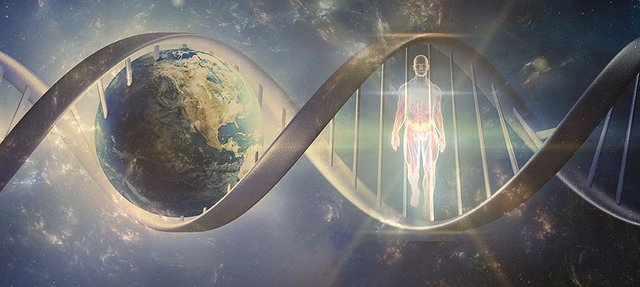
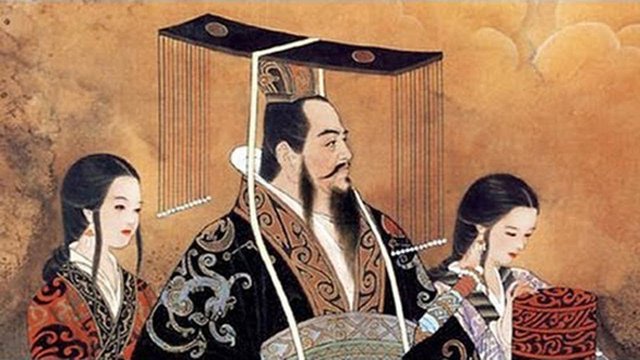
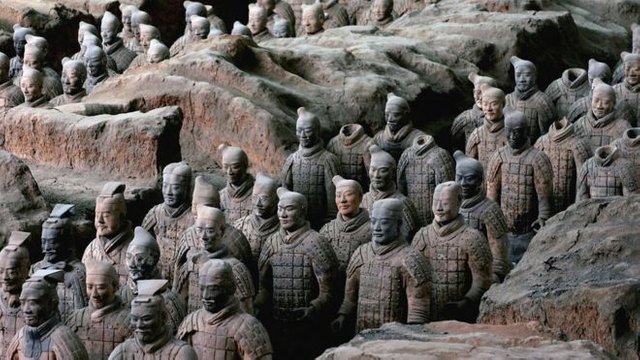
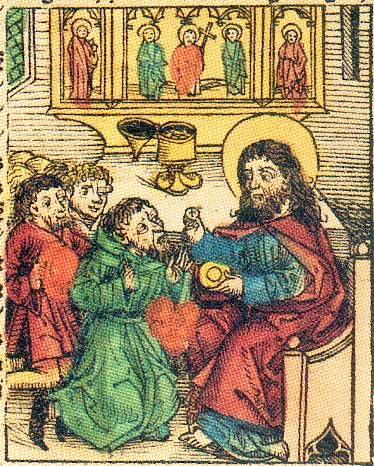

The subject you address is very broad and complex, estimated @ladyrebecca. The Spanish philosopher and novelist Miguel de Unamuno wrote a book of essays (one of the main ones in his work) entitled Of the tragic feeling of life (I don't know if there is an English translation), where he deals with the subject, specifically in chapter 3: "The hunger for immortality". As its title says, it reflects that "we cannot conceive of ourselves as not existing", and maintains that we are all animated by "the thirst for eternity". For him this can be partially realized through fame, love, and memory thanks to a work.
And I want to connect this with your first reference, that of the Chinese emperor Shih Huang Ti. He took me to the story by the universal writer Jorge Luis Borges called "The Wall and the Books" (I don't know if you've read it; I'll leave you a link to an English version: https://southerncrossreview.org/54/borges-muralla.htm), in which the narrator fictionalises the two great works of this emperor: the construction of the Chinese Wall and the burning of the library. Curiously, antagonistic actions -construction vs. destruction-, and he associates them with the permanence in the memory of his own people.
I really enjoyed your post. Thank you for your serious work, @ladyrebecca.
Indeed, imagining the world without us is almost an impossible task or maybe I should say imagining us in another world, another realm. I find it very strange that even religious people are sometimes desperate to prolong this life as much as possible. Sure, the afterlife, Paradise are all very nice, but nobody is in a hurry to go there...
Thank you so much for the book recommendations, you have just saved me from a boring book I was reading. I just checked my Kindle and I have two Borges short stories on it... hopefully they include the one you mentioned, too!
No. Not immortal. It must be very sad to see that all loved ones die and one remains alive. This is a very interesting and controversial subject. The fountain of eternal youth is a myth in all cultures. In Venezuela it is said that there are magical wells in the Amazon that give vigour and freshness to those who bathe in its waters, but nobody knows where they are. Today, as you well say, technology promises to give "quotas of more life" to people. However, paradoxically, we are also seeing how the same technology is causing premature deaths. I think that the idea of living more than 100 years without really living seems unattractive to me. Thank you for this post, @ladyrebecca.
I wasn't considering this when I asked the question...that's not an option definitely. I was thinking all of us being immortal, but definitely that's not an option for me as I tend to get bored easily
A very interesting topic. One of the many human misteries and obsessions.
The Terracota Army is probably one of the most impressive archaelogical findings, one that speaks volumes of the extent humans can go to attache themselves to life and power.
I guess we'll achieve it someday, at least the ones in a possition of power and wealth.
If the average folk may find themselves begging for some more years to enjoy with friends and family, to finish personal or family projects, imagine how much longer the rish and powerful would want to live.
One average life is enough for me. I don't think humanity has changed in the thousands of years we have been registering its history. Everything suggests things will only get worse in the future, why would anyone want to witness such disgrace. :)
At the personal level, it may be cool to see generation after generation of your descendants, but if they turn out bad, I don't think it will be that fun. Besides, sooner or later they'll get tired of ancient grandpa'. Maybe they'll find some old fashion mercury and put it in his coffee.
I think that those who have "achieved" immoratality have done it by sheer will power. The great men and women of letters, the grreat thinkers of old and the current people creating and suggesting ideas to transform the world (not always for the better). Fame and infamy are equal sources of immortality.
I guess, if what is said about the blockchain is true and if a 3rd WW does not obliterate us from the planet, we all are in a way immortal already. If all we post here will be here for good...
Great way of putting it!
That's why I always make my own coffee!!!
Haha. You do the right thing. One never knows
Wow,
This is such an excellent research and a good read. I must have learnt that I have learnt a lot from this. Thanks man.
Big ups!!!
Hi, @adsactly!
You just got a 0.32% upvote from SteemPlus!
To get higher upvotes, earn more SteemPlus Points (SPP). On your Steemit wallet, check your SPP balance and click on "How to earn SPP?" to find out all the ways to earn.
If you're not using SteemPlus yet, please check our last posts in here to see the many ways in which SteemPlus can improve your Steem experience on Steemit and Busy.
Excellent piece. An interesting topic for sure. The Taoists were particularly interested in immortality. Broadly speaking, there two schools of thought, neidan and waidan. The former was interested in the internal alchemy of immortality while the former was interested in its outward expression. In other words, neidan sought immortality of the spirit/mind/soul by achieving understanding of and union with the Tao. In contrast, waidan was interested in actual physical immortality. Waidan practitioners developed all sort of concoctions to achieve this goal, but often they ended up with opposite results.
Many thanks @ladyrebecca posting as @adsactly, the Vedic Sanskrit yoga texts talk of a technique of meditation which can awaken consciousness and allow hormones to be secreted from the Pineal gland which reduce ageing and even reverse it. So it is a real thing, immortality. Perhaps that is the "amrita" or deathless nectar of the Vedic tradition.
Here is the post on it today: https://steemit.com/consciousness/@julianhorack/the-real-goal-of-yoga-it-s-much-deeper-than-you-think
Well aren't we right back to where Qin Shi Huang was, only now we're injecting mercury even into the bodies of newborn babes.
I feel certain something like this happened to Atlantis, some bright idea that they would all live forever if they just ate a whole lot of gold or something, and they poisoned the entire population before anyone was the wiser.
Seems that there has always been and will always be some section of humanity that thinks it should and could live forever.
I wonder what sufficed as "proof" in the 17th century.
Interesting
Nope immortality is for those who don't want to go back to being energy and be enlightened. Unless granted by God and unless it's used for good I'd rather not have it at all. For me what would be better for others is a longer life, span not immortality. 😊
Posted using Partiko Android